
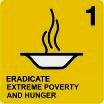
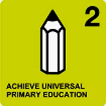
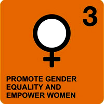
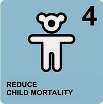
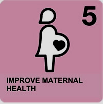
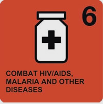












|
The Millennium Development Goals (MDGs) are eight goals to be achieved by 2015 that respond to the world's main development challenges. The MDGs are drawn from the actions and targets contained in the Millennium Declaration that was adopted by 189 nations-and signed by 147 heads of state and governments during the UN Millennium Summit in September 2000.
The collaboration between University of South Florida and UNESCO-IHE Institute for Water Education builds directly on Goal 7, i.e achieving environmental sustainability by 2015. However, it can be safely said that, ensuring adequate drinking quality water and managing wastewater, can help achieve all the 8 goals. For example, in remotest parts of the world (e.g. in a dessert region), women and children are forced by family needs to walk miles on end with water containers to bring drinking water. Given they did not need to do so, they could have invested more time in more constructive activities which would finally lead to gender equality and women empowerment (Goal 3) and improvement of maternal health (Goal 5).
Following are the 8 MDGs.
Goal 1: Eradicate Extreme poverty and hunger
Goal 2: Achieve Universal Primary Education
Goal 3: Promote Gender Equality & Empower Women
Goal 4: Reduce Child mortality
Goal 5: improve Material health
Goal 6: Combat HIV/AIDS, Malaria & Other Diseases
Goal 7: Ensure Environmental Sustainability
Goal 8: Global Partnerships for Development
More information can be found at http://www.un.org/millenniumgoals/ and http://www.undp.org/mdg/. |